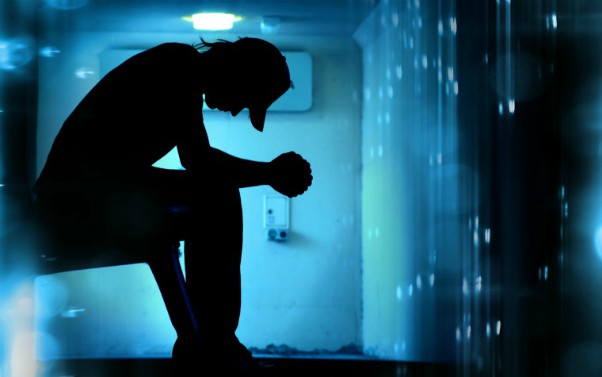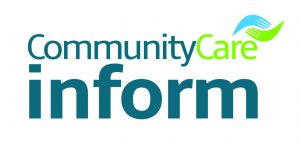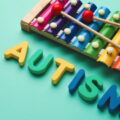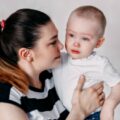

The text of this article comprises excerpts from a podcast episode by Community Care Inform about child and adolescent to parent violence and abuse (CAPA). You can listen to the full podcast using the player below. It discusses:
- what CAPA is;
- how to identify whether a family is experiencing normal behaviour concerns and boundary pushing, or abuse;
- what research says about when and why this form of abuse occurs;
- how social workers should respond to CAPA;
- how the response should differ from responding to domestic abuse by an intimate partner and vary depending on the child’s age.
The Learn on the go podcast is free to access on iTunes and other podcast apps. Community Care Inform subscribers can access supporting resources including a full written transcript and key points from the episode on Inform Children.
The experts
Helen Bonnick: Social worker and practice educator who specialises in child to parent violence and abuse. Her website Holes in the Wall brings together information, research and resources about this form of abuse for parents and professionals. She is the author of Child to Parent Violence and Abuse: a practitioners guide to working with families, Pavilion Publishing, 2019.
Jane Griffiths: Parent-child therapist, providing consultancy and training. Her Facebook page CAPAUK offers a ‘first response’ service to families and professionals.
What is child or adolescent to parent abuse?
Jane Griffiths
One common definition is “adolescent-to-parent abuse is any behaviour used by a young person to control, dominate or coerce parents. It is intended to threaten and intimidate, and puts the family safety at risk.” I always get a parent or a carer to consider a few questions:
- Do you tread on eggshells around your child?
- Do you change your parenting for fear of what could happen if you don’t toe the line or go along with what a young person is asking you?
- Are you in fear of your child?
Children and teenagers always push boundaries. It is a biological, innate part of growing up – to test parents, to see how far they can go. But if we start going into those realms [where parents are in fear], that’s when we start thinking about whether it’s pushing over into an abusive relationship.
It’s also about a pattern. It’s not a one-off piece of behaviour…it builds up over time and suddenly you look around and the young person is in control of what’s happening in the family.
What do we know about why it happens?
Helen Bonnick
It would be easy to say, ‘It’s down to poor parenting,’ and that’s often the typical first response or assumption. But what we see is that actually often parents are trying very, very hard.
We might be looking at something that’s happened to a child early on – early trauma, or something’s happened in their development. And we see problems in regulating mood, in understanding what’s going on in their life, in responding to certain stimuli.
But we might also see a child who’s had a trauma later on or who has suffered grief and is finding difficulties in expressing what’s happening and their emotions. They might have witnessed domestic abuse or live with mental illness or substance abuse.
Often things come together. It might be one thing piled on another. And the children themselves are often very vulnerable because of the situation they’re in and what they’re expressing through their behaviour is often a communication to let us adults know that they are in distress and that they need help themselves.
Jane Griffiths
A lot of families that we work with, there are potentially learning disabilities for either the parent or the child. Children referred to us often have a secondary diagnosis, for example, of autism, Asperger’s, social defiant disorder, systemic family problems. There are also cultural factors and working with those is really important. Peer group can be a factor too.
Working with families
- It’s about being really clear with parents about taking control back; understanding where that control and power is in the first place and thinking about how you take that back.
- Setting some really simple and clear boundaries. It’s not about completely overhauling the family system – we’re thinking about: what small changes can you put into place that really say to your child and young person, “I am the parent. I am going to take responsibility and I am going to take this relationship back into the place where it needs to be”?
- It’s difficult and controversial in some areas but we need to talk to parents about calling the police. It’s really important for parents and professionals to understand that the police do not want to criminalise our children. There are a lot of hurdles before that would happen. What we’re asking a parent to do in certain circumstances is actually say, ‘I am in fear of something happening and I’m going to call the police.’ But it requires a lot of conversations.
Further guidance
Community Care Inform Children subscribers can access further in-depth resources including:






 Bournemouth, Christchurch and Poole
Bournemouth, Christchurch and Poole  Hampshire County Council
Hampshire County Council  Lincolnshire County Council
Lincolnshire County Council  Norfolk County Council
Norfolk County Council  Northamptonshire Children’s Trust
Northamptonshire Children’s Trust  South Gloucestershire Council
South Gloucestershire Council  Wiltshire Council
Wiltshire Council  Wokingham Borough Council
Wokingham Borough Council  Children and young people with SEND are ‘valued and prioritised’ in Wiltshire, find inspectors
Children and young people with SEND are ‘valued and prioritised’ in Wiltshire, find inspectors  How specialist refugee teams benefit young people and social workers
How specialist refugee teams benefit young people and social workers  Podcast: returning to social work after becoming a first-time parent
Podcast: returning to social work after becoming a first-time parent  Podcast: would you work for an inadequate-rated service?
Podcast: would you work for an inadequate-rated service?  Family help: one local authority’s experience of the model
Family help: one local authority’s experience of the model  Workforce Insights – showcasing a selection of the sector’s top recruiters
Workforce Insights – showcasing a selection of the sector’s top recruiters 

 Facebook
Facebook X
X LinkedIn
LinkedIn Instagram
Instagram
This podcast was extremly informative. I am a social work student and have chosen to do a literature review on child to parent abuse, initially I wanted to explore the impact on siblings living within such households, however the literature available is extremely limited and I’ve struggled to find any uk based jornal articles. I don’t suppose anyone linked to this could recommend where I can find full UK articles??
Thanks in advance
http://nonviolentresistance.org.uk/3rd-national-nvr-uk-conference/
Hi Annie,
I don’t know if a powerpoint would do…..this was presented at the Non Violent Resistance conference last July……
I went to a presentation on working with siblings.
I think Non Violent Resistance literature could be a rich seam for you……..
Haim Omer’s book Non Violent Resistance, Cambridge 2004 has a chapter on Violence towards siblings…….there are other mentions of the effects on siblings in the book……
I’m not sure if this is something you have already come across.
I would be happy to stay in touch as I intend to set up a community interest corporation to run support groups for parents whose children are violent towards them, and also offer NVR.
As a parent not a social worker I am pleased this is being shared. My son became violent a year ago and we sought help from Children’s Services. As with all these issues it was complex and included gangs and drug use on his part. However Children’s Services made it my fault as a mother, and undermined my relationship with him.
The violence started over me removing the PS4 if he didn’t go to school and restricting his time away from the house.
The social worker put in place rules that he could stay out all night, have the PS4 all night and there was to be no consequences for him not going to school 2 mornings a week. In addition as I had disclosed that on one occasion when he was violent I took his younger sister out of the house, it was described in the assessment that I left the house due to mental health issues, not to protect myself and child from violence.
This gave him even more power over me as I had been undermined by a professional, and he saw that ongoing violence gave him what he wanted – no curfew and unlimited PS4.
After he was arrested by the police he got some sessions with an Early Help worker, but that was all the support we got except to be referred eventually to the TripleP parenting course, which I could not relate to and the Home Office Guidance on APVA says is generally not appropriate.
As a parent I’m not perfect and was asking for help but once I’d researched and found information on APAV or CAPA was able to find and fund help myself things have calmed down.
If this helps one social worker help one family not to go through what we went through that’s a great improvement.
I have a physically disabled friend whose adolescent son has ADHD and is now violent towards her.
Her problems have been met with little understanding and help. I suspect this is because she is black and lives in a racist area.